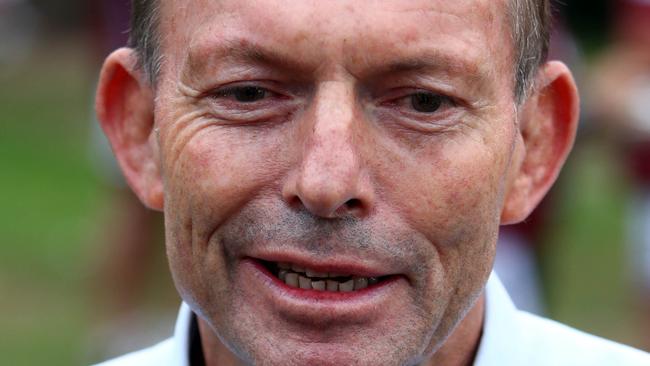Liberals support Abbott plan to cut immigration
Liberal senator Dean Smith has backed Tony Abbott’s call for a reduction in Australia’s immigration.

Liberal senator Dean Smith has backed Tony Abbott’s call for a reduction in Australia’s immigration, warning that the rapid population growth of the nation’s major cities should “raise alarm” about its impact on living standards.
The West Australian senator, one of the key figures in the successful campaign to legalise same-sex marriage, said population growth should be “top of mind” for all levels of government because of its potential impacts on quality of life for Australians.
Senator Smith said infrastructure had failed to keep up with population increases and called for “massive growth” in public spending on roads and rail in capital cities. “I think talking about population issues and its impact on infrastructure could be a part of our pre-election armoury,” Senator Smith told The Australian.
“Tony Abbott’s contribution on the population debate should not be dismissed out of hand. People want an honest and frank discussion about population issues and how they affect their quality of life.
“This surging population over the next three decades combined with present and future infrastructure needs should raise alarm.”
The Australian reported yesterday that Home Affairs Minister Peter Dutton last year proposed to reduce Australia’s immigration intake by 20,000 to 170,000 per year, but the government decided to maintain current levels.
Mr Abbott and NSW senator Jim Molan yesterday endorsed a push to cut immigration rates.
Senator Smith would not put a number on the immigration cull, but is understood to prefer a 20,000-per-year reduction, rather than Mr Abbott’s proposal to halve migration levels.
“The first element of the debate is to agree principles and then to discuss appropriate levels,” he said.
“When I read Abbott’s speech, yes, he hunkers down on the numbers and I can understand that, but what people are recognising and agreeing is there is an infrastructure deficit; that is a critical first step. The second critical step is, why are the population growth figures so out of step from the population growth estimates, which is another point Tony was making.
“It is important we get better at forecasting because then we can have a more reasoned discussion about the appropriate levels of immigration and the infrastructure necessary to support it.” Senator Smith said that, based on population growth forecasts, annual government spending on infrastructure in Sydney, Brisbane, Melbourne and Perth would increase 40 per cent to $52.6 billion by 2030.
Mr Abbott said immigration had been a ‘‘taboo’’ subject for too long. “Things shouldn’t be off limits as much as they are at the moment. It seems talk about the rate of immigration has been taboo until recently. Now that shouldn’t be the case,” Mr Abbott told 3AW.
“You can be pro-immigrant, as I am, without necessarily thinking the rate of immigration has got to be as historically high as it has been over the last decade.”
Bill Shorten said immigration was important for economic growth, attributing the population debate to a government “civil war”.
Other government backbenchers are sympathetic to the current migration figures. North Sydney Liberal MP Trent Zimmerman said state governments needed to do more to encourage migrants to settle in regional centres. “Our immigration levels are at the right level for our economic and security needs,” he said.
“The majority of migrants are filling skills we need. One of Australia’s greatest achievements has been forging the world’s most successful multicultural society. What has been missing is a commitment to ensuring infrastructure meets population growth and there is more state governments can do in partnership with the federal government to make regional centres for migrants.”
Queensland LNP MP Ted O’Brien said the current numbers of permanent migrants was “about right”, but said the level should be under constant review.
Foreign Minister Julie Bishop and Deputy Prime Minister Michael McCormack defended the migrant intake, declaring 190,000 new entrants per year were only accepted if it was in the national interest. “The most important aspect is to consider the makeup of the migrant community into Australia,” Ms Bishop said.


